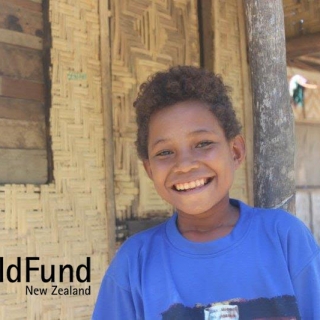FEATURED STORIES
Case Studies & Initiative Journeys
Case Studies described here are real examples of how an organisation has used an approach in Aotearoa New Zealand. Contact the featured organisation if you want to find out more. Please contact us to find out if there is a case study you think might be good to profile on this site.
Becoming a Learning Organisation:
ChildFund New Zealand uses Results Based Accountability™ to measure key outcomes
Results Based Accountability™
Organisation
ChildFund New Zealand
Location
Papua New Guinea
ChildFund New Zealand increasingly re-examines its projects thoroughly, when they end.
It believes the practice is much better than the quarterly monitoring that many organisations rely on. It also tells it what went wrong, as well as what went right.
At ChildFund New Zealand we are not scared to identify shortfalls,” says development effectiveness advisor Danica Waiti. “We want to do better next time and by evaluating, reviewing and reflecting on our work, we learn.”
The following case is an example of how the evaluation of a completed project influenced a new one.
ChildFund New Zealand designed a project to strengthen deprived, excluded and vulnerable communities in rural Papua New Guinea. It was around the same time as the New Zealand Aid Programme adopted Results Based Accountability™ as its preferred measurement tool.
“In 2010, our capability in planning for outcomes was relatively unsophisticated,” says Danica. “And with little practical experience of working in Papua New Guinea, the result was a project with very ambitious targets.”
The project began after receiving funding from the New Zealand government. ChildFund New Zealand realised that they had set unrealistic targets. This was recognised as a problem at the end of the project when they had failed to reach their targets and had to explain why they hadn’t made the expected progress.
For example, ChildFund New Zealand hoped to improve the way that parents managed cases of diarrhea with their children. They had taught parents about the importance of fluid and food to aid recovery and health but parents continued to use home remedies. Parents’ cultural beliefs about the root of sickness and disease influenced their behaviour more than ChildFund New Zealand’s lessons.
ChildFund New Zealand could explain why it failed to meet long-term targets:
- The programme was too brief to produce effective change
- Targets didn’t take local culture into account
“We had set targets against the sort of results we would expect to see in other countries we work in. But Papua New Guinea does not have the same education system as Zambia, for example, and the cultural and traditional beliefs were unique to the communities in which they were entrenched.”
“In summary, at the start of the project we knew a little and by the end of the project ChildFund New Zealand knew a bit more. We were learning.”
ChildFund New Zealand had to decide whether to keep the lesson to themselves? Should they share it with their colleagues in these communities? Should they go even further and publish the lessons learnt? They decided to share the lessons and use them in a new project in Papua New Guinea with colleagues.
Many organisations claim to review and reflect on their work, to learn lessons for the future. But not all of them do it.
In striving to bring about change for the most deprived, excluded and vulnerable children, ChildFund New Zealand relies on strengthening its institutional knowledge to review what works and why.
“We value knowledge sharing and best practice. We are committed to completing the cycle.”
How does the concept differ from the previous project?
- First, they have asked for more time. Five years is necessary to show changes in the nutritional status of infants. Three years (the usual length of their projects) just isn’t long enough.
- Second, they define what they will achieve, based on what they now know to be realistic. They are part of a wider collective working towards change in Papua New Guinea; ChildFund New Zealand is not alone.
Some tips from ChildFund New Zealand :
- Don’t be afraid to acknowledge that you don’t know everything. Even the long-established development programmes don’t get it 100% right.
- Recognise that a real outcome of a project can be institutional knowledge – knowing and understanding the communities you work with better is important.
- Learn from your mistakes and share the lesson with everyone you can. Our collective experience is too valuable to keep to ourselves.

